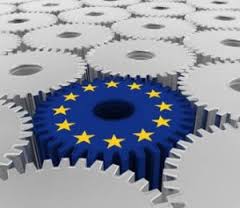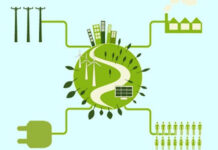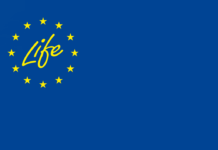
1 Communication and sensitization in the environmental segment
The knowledge of the advantages and responsibilities regarding behavior and choices favorable for the environment would render the efforts made in this respect much more efficient. The behavior of Italians is very inhomogeneous and it varies by geographic areas, and also with respect to other European countries. An inhabitant of Trento is on average much better green-educated than an inhabitant of Naples. In the recent decades numerous steps ahead have been made, but it is necessary to invest in a coordinated and targeted campaign sensitizing basically the most “arid” areas in terms of sensitivity to the environment, with the aim to render the green culture as uniform as possible. The national government should launch and ad hoc committee of experts and representatives of regional governments in order to create a program providing for not only standard communication instruments, but also initiatives which take account of the cultural substrate of the areas.
2 Planning and stable regulation involving the areas
The absence of a real planning long-time shared between political parties which could be adopted by the subsequent governments, besides the ensuing continuous change of legal and regulatory framework, is the reason for a stop and go of green markets, entailing considerable economic and employment difficulties in the segment, the flight of investments and, what is even more preoccupying – a waste of public money. It is necessary that the documents of national planning such as the National Energy Strategy be revised from the point of view of efficient resources and requirements of the areas, also in line with the new distributed and not centralized system of energy generation. A great opportunity is offered by the European Project of the Covenant of Mayors, joined by numerous Italian communes which are asked to determine actions for the sustainable energy in line with the European guidelines. There would be necessary a real action of coordination and enhancement of this important European instrument at the level of central government, also in order to redefine the RES.
3 Energy and water efficiency
One cannot consider planning new renewable energy or water production plants without previous actions of sensitization and a real action plan aimed at saving. It would be necessary to promote monitoring instruments so that the consumers could realize where wastes can be determined and take the necessary measures. Influential research institutes assert, and it is not hard to believe, that identification of leaks changes behavior in that a saving exceeding even 11% can be achieved. Also in the framework of efficiency it is necessary to provide planning and adopt major provisions, besides those already launched, which aim to encourage the use of new technologies of energy saving. Such incentive, in a period of economic crisis, may not omit the aspects related to financing. In this respect, in the field of energy, it would be necessary to promote spreading of Energy Service Companies that are in charge of initial investments related to the long-term energy purchasing contracts. A similar mechanism could also lend itself to promoting of private investments in the water segment where new technologies, above all those of desalination and treatment have made enormous progress when it comes to saving. This passage may not end without encouraging the competent institutions to intervene in the case of leaks in the water distribution network, which reach over 40% at the national level.
4 Development of smart microgrids
Renewable energy sources pave the way to the new concept of smart microgrids, where most of the energy demand of an area can be met through a local production from renewable energy plants. The real development of microgrids would transform the current national transmission and distribution network in an integrated system backing up microgrids. There is a lot to be done in in terms of legislation, regulation and liberalization of Internal Networks of Utilization and of the private contracts between the producer and consumers. In this respect no specific incentives would be necessary, besides for the battery segment (that are by the way applied by Germany) and modern instruments of smart energy management.
5 Synergy in the cycle of green economy, energy, water and waste
The synergy and integration between macro areas of green economy is the right way to optimize efforts, not only economic ones, has become a consolidated theory. The cost of production through desalination of drinking water for instance is accounted for 40% by the cost of energy. In turn its production from renewable energy sources provides saving even of 50%. Similarly, wastes which currently constitute mostly a cost may acquire a value, if they are adequately selected and used in the energy production. It would be necessary to establish round tables aimed at such a synergy in order to launch incentivizing mechanisms that promote adopting integrated solution.
Per ricevere quotidianamente i nostri aggiornamenti su energia e transizione ecologica, basta iscriversi alla nostra newsletter gratuita
e riproduzione totale o parziale in qualunque formato degli articoli presenti sul sito.
















